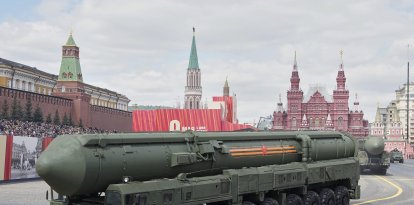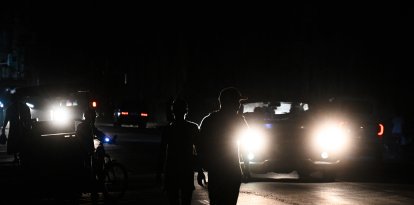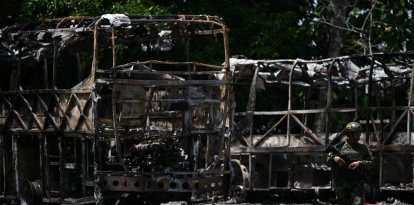North Korea launches six missiles towards Japan
Following North Korea's launch of an intercontinental ballistic missile at Japan, the U.S. and South Korea have decided to continue indefinitely with their military maneuvers.

(Archivo / Cordon Press)
North Korea continues to launch missiles. Just twenty-four hours after launching 23 missiles into the sea near South Korea, North Korean authorities launched at least six more missiles, this time directed towards the area near the Japanese coast.
Among the projectiles was also an ICBM, an intercontinental ballistic missile, South Korea's Chief of Public Affairs in Joint Chief of Staff Kim Joon-rak said in remarks reported by Reuters during a conference in Seoul:
According to what a South Korean government source told to CNN, North Korea's test launch of the Hwasong-17, its most powerful missile, ended in failure.
However, the tests continued. A few hours after the launch of three missiles was detected, the Yonhap News Agency reported the launch of a fourth missile. This missile was unidentified, but it had a clear trajectory: also in the direction of the East Sea. Currently, the agency reports, the "army is analyzing data from the missile" launched on Thursday, Nov. 3.
Hours later, the same agency reported the launch of two more short-range missiles, this time destined for the Yellow Sea.
The federal government responds
The U.S. responded promptly. The White House and the State Department condemned North Korea's actions just minutes after the launches.
The federal government did so through a statement sent by National Security Council Spokeswoman Adrienne Watson, in which she sanctioned North Korea's actions:
State Department Spokesman Ned Price also added his voice to the criticism of North Korea. In his press release, he wanted to make it clear that the United States condemns these actions:
U.S. and South Korea will continue military maneuvers
As confirmed by Adrienne Watson in the statement issued by the White House, North Korea's actions will not go unnoticed. The statement reported that National Security Advisor Jake Sullivan was in talks with his counterparts in Japan and the Republic of Korea to coordinate a response:
The UN was also alluded to by Price, who called for all member countries to get involved in the matter:
Meanwhile, the South Korean Air Force confirmed to the Yonhap News Agency that they will continue with the military maneuvers that they are carrying out jointly with the United States. The operation, called Vigilant Storm, began on Oct. 31 and was scheduled to end on Nov. 4. However, since North Korea's recent launches, the U.S. and South Korea have agreed to continue the operation indefinitely.

























